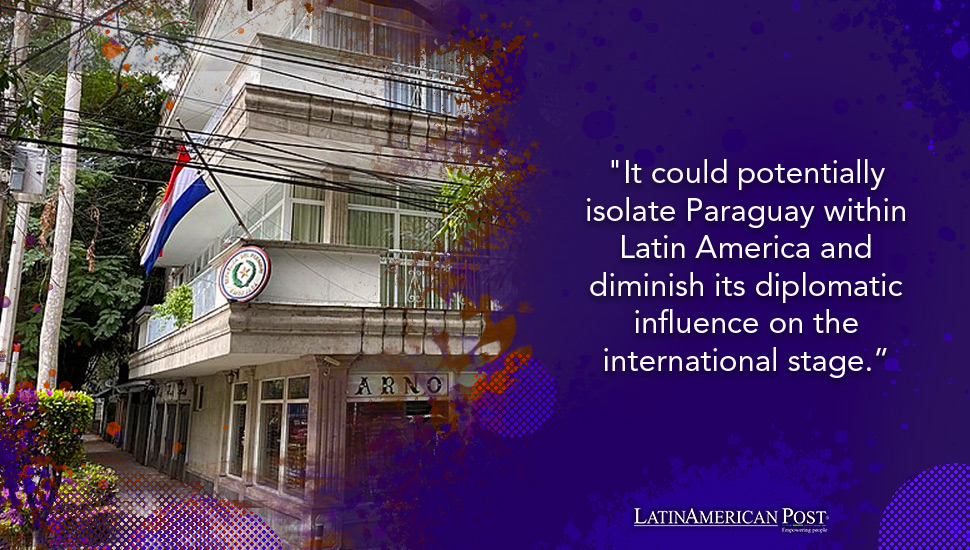Paraguay’s Embassy Closures: A Strategic Misstep?

Paraguay’s decision to shutter embassies in five countries, citing financial and reciprocal reasons, could signal a troubling retreat from global engagement. It could potentially isolate Paraguay within Latin America and diminish its diplomatic influence on the international stage.
Paraguay’s strategic move to shut down its diplomatic missions in Australia, Canada, Egypt, Portugal, and Switzerland, as announced by Foreign Minister Rubén Ramírez, marks a significant shift in its foreign policy. This decision, grounded in financial prudence and the principle of reciprocity, could have far-reaching implications for Paraguay’s international diplomacy and its role in the Latin American geopolitical landscape.
Minister Ramírez’s Explanation
Minister Ramírez, addressing the Senate’s Foreign Relations Committee, explained that the closures were based on mutual agreement with the affected countries, which have managed their Paraguayan relations through concurrent representation from Brasilia or Buenos Aires. The closures are considered a cost-saving measure, reflecting the smaller nations’ inability to sustain reciprocal diplomatic presences in Paraguay. This approach might conserve resources but hints at a potential diminishment of Paraguay’s direct diplomatic engagements worldwide.
The decision to close these embassies is more than a budgetary adjustment; it represents a recalibration of Paraguay’s diplomatic strategy, emphasizing a shift towards regional centralization of its international relations. While this may seem like a practical response to fiscal constraints, it raises questions about the long-term effects on Paraguay’s global presence and influence. An embassy is a vital link, facilitating cultural, economic, and political exchanges that strengthen bilateral relations. The absence of these diplomatic outposts may limit Paraguay’s ability to engage proactively with international partners, potentially sidelining it in global discussions and negotiations.
In the broader context of Latin American diplomacy, Paraguay’s decision could be perceived as a retreat from active international engagement. This might affect its bilateral relationships and standing in regional coalitions and partnerships. With its diverse political and economic landscape, Latin America relies on robust diplomatic networks to foster collaboration and address shared challenges. Paraguay’s reduced physical diplomatic presence may hinder its ability to contribute to and influence regional dynamics, possibly leading to isolation within the continent.
International Reputation at Stake: Unintended Consequences
Furthermore, the closures might have unintended consequences for Paraguay’s international reputation. In an era where global visibility and engagement are crucial, withdrawing from the diplomatic arena could be misconstrued as a lack of commitment to international cooperation. This perception could impact Paraguay’s ability to attract foreign investment, negotiate trade agreements, and participate in international forums, where direct diplomatic interactions often pave the way for broader cooperation.
Also read: Rushed Reforms: Paraguay’s Pension Oversight Bill Raises Concerns
While closing these embassies might offer short-term financial relief for Paraguay, the strategic wisdom of such a decision remains to be determined. The potential risks of reduced global engagement, diminished influence in Latin American affairs, and the possible erosion of international stature must be carefully weighed against the immediate fiscal benefits. Paraguay’s diplomatic maneuver, therefore, stands at a crossroads, with its long-term international relationships and regional role hanging in the balance. This highlights the complex interplay between financial considerations and the imperatives of global diplomatic presence.





